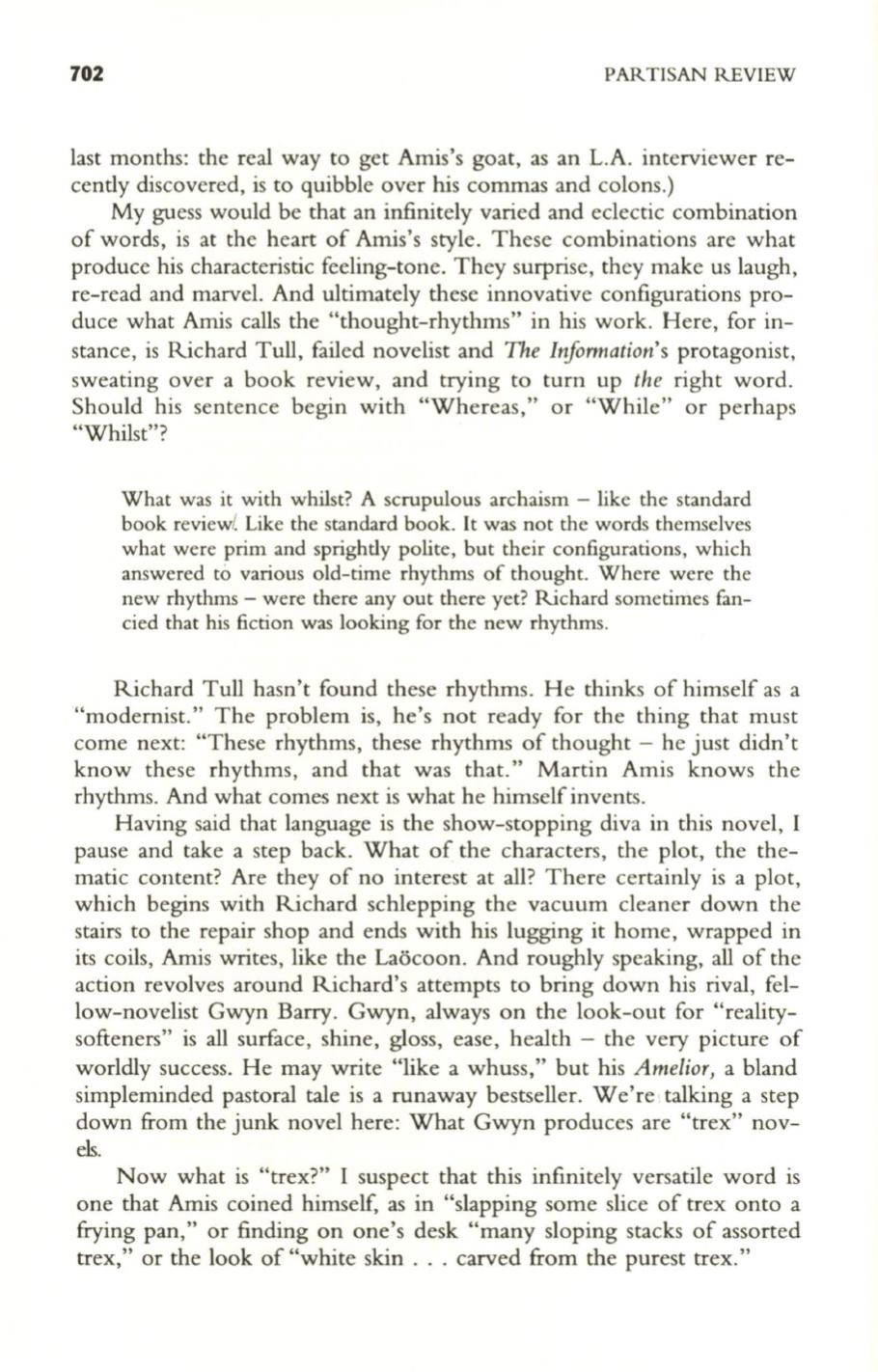
702
PARTISAN REVIEW
last months: the real way to get Amis's goat, as an L.A. interviewer re–
cently discovered, is to quibble over his commas and colons.)
My guess would be that an infinitely varied and eclectic combination
of words, is at the heart of Amis's style. These combinations are what
produce his characteristic feeling-tone. They surprise, they make us laugh,
re-read and marvel. And ultimately these innovative configurations pro–
duce what Amis calls the "thought-rhythms" in his work. Here, for in–
stance, is Richard Tull, failed novelist and
The Information's
protagonist,
sweating over a book review, and trying to turn up
the
right word.
Should his sentence begin with "Whereas," or "While" or perhaps
"Whilst"?
What was it with whilst? A scrupulous archaism - like the standard
book review!. Like the standard book.
It
was not the words themselves
what were prim and sprightly polite, but their configurations, which
answered to various old-time rhythms of thought. Where were the
new rhythms - were there any out there yet? Richard sometimes fan–
cied that his fiction was looking for the new rhythms.
Richard Tull hasn't found these rhythms. He thinks of himself as a
"modernist." The problem is, he's not ready for the thing that must
come next: "These rhythms, these rhythms of thought - he just didn't
know these rhythms, and that was that." Martin Amis knows the
rhythms. And what comes next is what he himself invents.
Having said that language is the show-stopping diva in this novel, I
pause and take a step back. What of the characters, the plot, the the–
matic content? Are they of no interest at all? There certainly is a plot,
which begins with Richard schlepping the vacuum cleaner down the
stairs to the repair shop and ends with his lugging it home, wrapped in
its coils, Amis writes, like the Laocoon. And roughly speaking, all of the
action revolves around Richard's attempts to bring down his rival, fel–
low-novelist Gwyn Barry. Gwyn, always on the look-out for "reality–
softeners" is all surface, shine, gloss, ease, health - the very picture of
worldly success. He may write "like a whuss," but his
Arnelior,
a bland
simpleminded pastoral tale is a runaway bestseller. We're talking a step
down from the junk novel here: What Gwyn produces are "trex" nov–
els.
Now what is "trex?" I suspect that this infinitely versatile word is
one that Amis coined himself, as in "slapping some slice of trex onto a
frying pan," or finding on one's desk "many sloping stacks of assorted
trex," or the look of "white skin ... carved from the purest trex."


